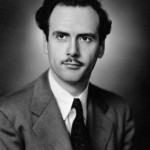If you teach the history of the West, around the time that you turn the corner to the rise of Christianity, having covered the Ancient Near East and Hebrews, the Greeks, and then the Romans, you encounter a series of hurdles that produce double vision. Christians distinguished the eternal from the temporal, ecclesiastical power from the state’s jurisdiction, knowledge that comes by faith as opposed to truths ascertained by reason, matters that may please the body but not the soul. This doubleness was not — as I understand it — part of Hebrew, Greek, and Roman civilization to the degree that Christianity wallowed in it. In fact, the West would not be what it is, and we wouldn’t have the fights we do — separation of church and state, warfare between theology and science — without the doubleness that Christianity bequeathed to us.
Why then do some contemporary Protestants feel the need to condemn dualism? According to Pastor Matt, who is using Tim Challies as his billboard, Christians should reject all forms of dualism:
The reason we find it difficult to think of our “secular” tasks (writing code, checking groceries, digging ditches, changing diapers, cleaning the house) as important as ministry work is not because of the teaching of the scriptures, but rather because of Aristotelean dualism. Aristotle taught that some activities in life (namely: mental / intellectual pursuits) were “more human” than others (physical labor). Aristocracy and slavery were the result.
This idea was pulled into the church by Eusebius, and the clergy/laity split was born. Today this dualism oppresses the consciences of many who desire to live a sold-out life for Jesus.
This split should be rejected. Every task can be a holy, kingdom building, God pleasing task. Ministry work does not occupy a categorically more important role in the Kingdom of God.
I don’t know what New Testament Matt is reading (and I have yet to make it to that daily assignment for my annual program of Bible reading), but the apostle Paul sure sounds like he understands his own apostolic and pastoral ministry in dualistic terms:
So we do not lose heart. Though our outer self is wasting away, our inner self is being renewed day by day. For this light momentary affliction is preparing for us an eternal weight of glory beyond all comparison, as we look not to the things that are seen but to the things that are unseen. For the things that are seen are transient, but the things that are unseen are eternal. (2 Corinthians 4:16-18 ESV)
I understand the appeal of taking every square inch captive and integrating all of human existence under Christian truths, but what if that thought owes more to G. W. F. Hegel than to the Bible itself? At the very least it might lead Pastor Matt to appreciate Aristotle more than he does.
(Image: Hegel portrait by Schlesinger)
















